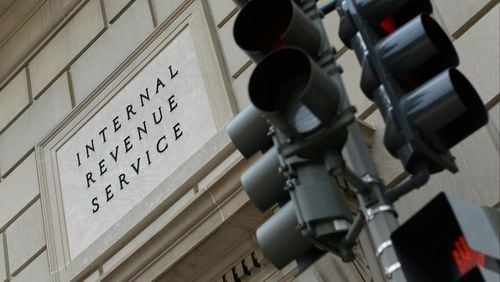When Democrats in Congress approved an extra $80 billion for the Internal Revenue Service last year, most of the focus was on how it would be used to step up tax enforcement.
But a chunk of that same money also went to improve taxpayer services, and Biden Administration officials say that it’s already paying off.
“Taxpayers are getting drastically improved customer service,” said Treasury Secretary Janet Yellen, who said at a pair of Congressional hearings that the feds had hired 5,000 extra people just to staff the phones during this tax season, with a goal of answering 85 percent of taxpayer calls.
“While it varies from week to week, so far, we are certainly in that 80 to 90 percent range,” Yellen added.
If those numbers hold, it would be a dramatic change inside the IRS. In 2019, taxpayers reached a live person on the telephone only about 30 percent of the time. Last year, it was down to 13 percent, up from the abysmal 11 percent in 2021.
Those customer service improvements haven’t stopped GOP complaints, as Republicans charge the larger IRS budgets will fund an ‘army’ of tax agents to audit and harass hard-working taxpayers around the nation.
For GOP lawmakers, the goal is simple. They want to keep chopping away at the IRS budget.
“Joe Biden just keeps pumping taxpayer dollars into the IRS,” said U.S. Rep. Buddy Carter, R-Pooler. “He’s lost all grasp on what Americans really want. Defund the IRS!”
Carter legitimately wants to ‘defund’ the IRS, as his FairTax proposal would replace the income tax system with a national sales tax.
The most important impact of a larger IRS budget won’t be the number of phone calls that get answered, but how much gets collected in federal taxes that are legitimately owed to Uncle Sam.
The IRS estimates that about 82-84 percent of Americans pay their full tax bill. The remaining 16-18 percent do not, creating what’s known as the ‘tax gap’ — the amount of money that taxpayers truly owe, but don’t pay the feds.
And that amount keeps on growing.
In 2021, former IRS chief Charles Rettig said, “it would not be surprising if the noncompliance for tax years going forward exceeded $1 trillion, annually.”
That’s $1 trillion per year in taxes not being paid to Uncle Sam, at a time when yearly deficits are over $1 trillion.
If the IRS can add people to pick up the phone, we’ll soon find out if adding extra tax lawyers and accountants can reduce the tax gap. If you’re a tax cheat, you’re on notice.
Jamie Dupree has covered national politics and Congress from Washington, D.C. since the Reagan administration. His column appears weekly in The Atlanta Journal-Constitution. For more, check out his Capitol Hill newsletter at http://jamiedupree.substack.com







